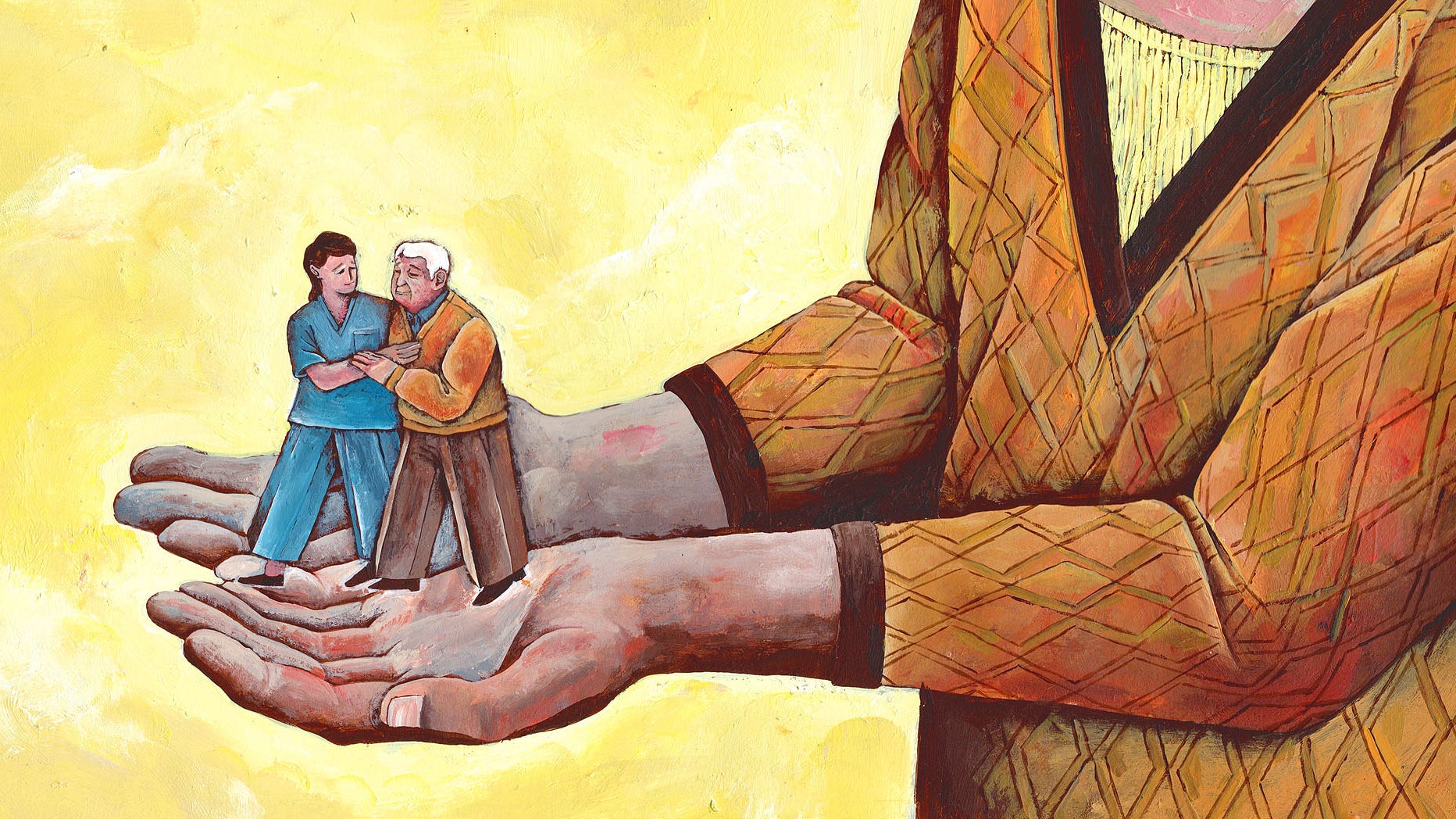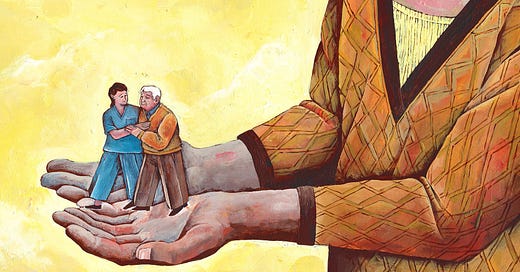The Holocaust Survivors Who Take Care of Their Own
As the children of the war reach old age, one group of survivors is teaching nursing home workers how to treat a type of trauma that only they can understand.

Illustration by Seymour Robbins | Photos by George Voulgaropoulos
Olga Horak, a 91-year-old Holocaust survivor, knows the Sydney Jewish Museum intimately. Three days a week she arrives in Darlinghurst, a voguish section of the city, at nine a.m. — a full hour early — so that she is guaranteed a parking spot close enough to the museum.
“I can’t walk very far,” Horak says during in an interview in a small, tidy room in her home. In the center is a suitcase-sized coffee table Horak recently scaled to change a lightbulb.
A week later, at the museum, her slate-colored hair is arranged in a chignon and she wears dangly, gold earrings — a small circle perched on a larger one. Despite the cusp-of-summer heat, she is dressed in a three-quarter-sleeved leopard-print dress that ends a few inches below her knees, paired with black pantyhose and black pointed flats.
“I won’t wear shoes without stockings, not even sandals,” she said. Horak comes from a line of precise dressers. Her own mother used to s…
Keep reading with a 7-day free trial
Subscribe to Narratively to keep reading this post and get 7 days of free access to the full post archives.



